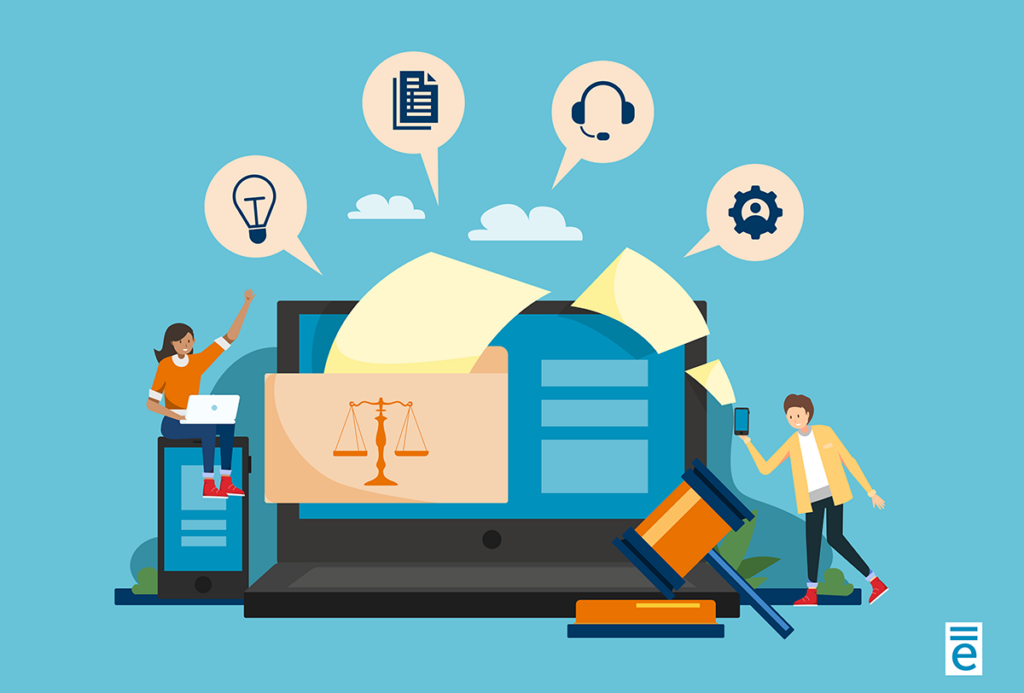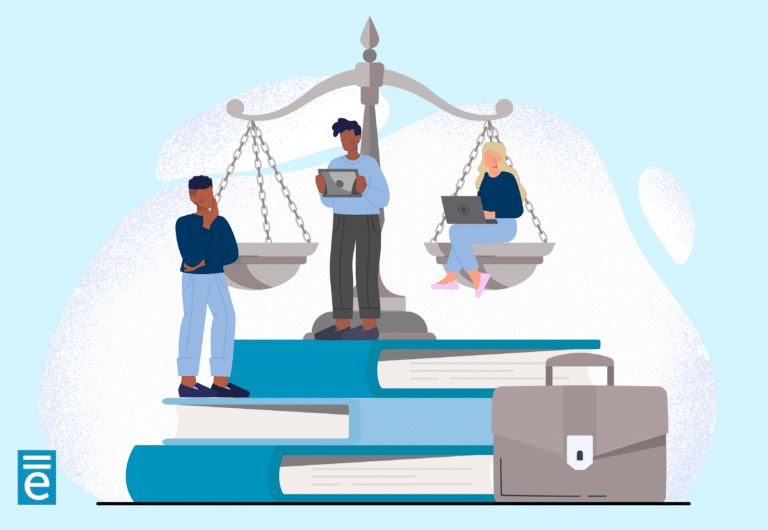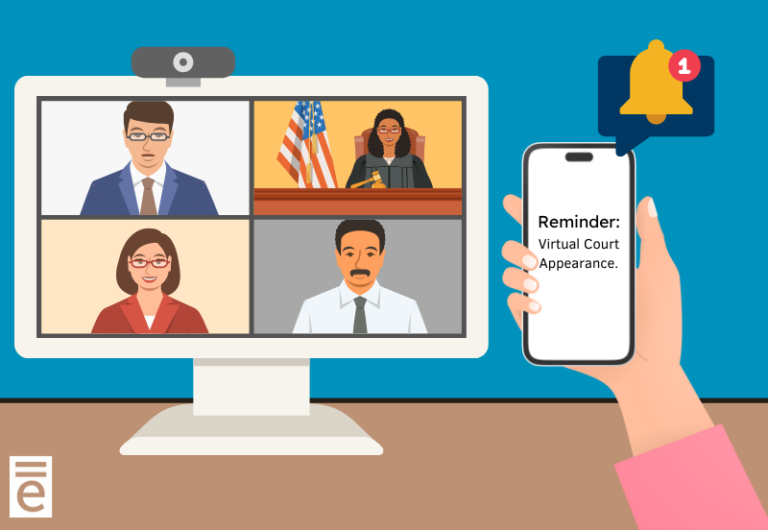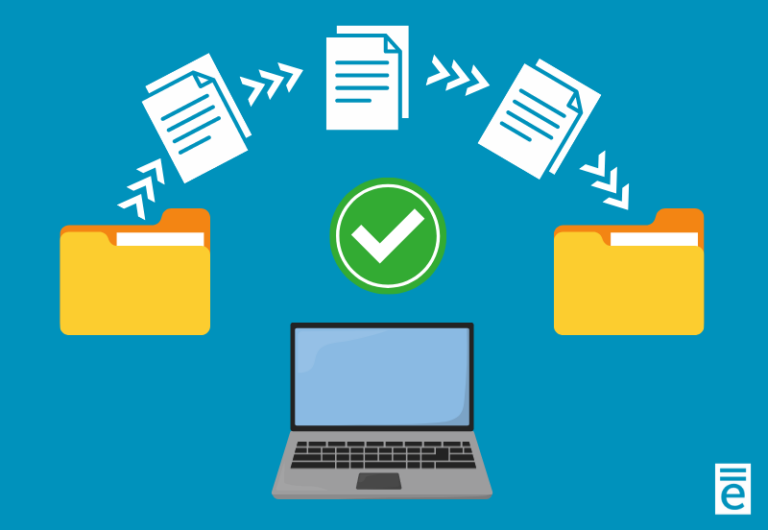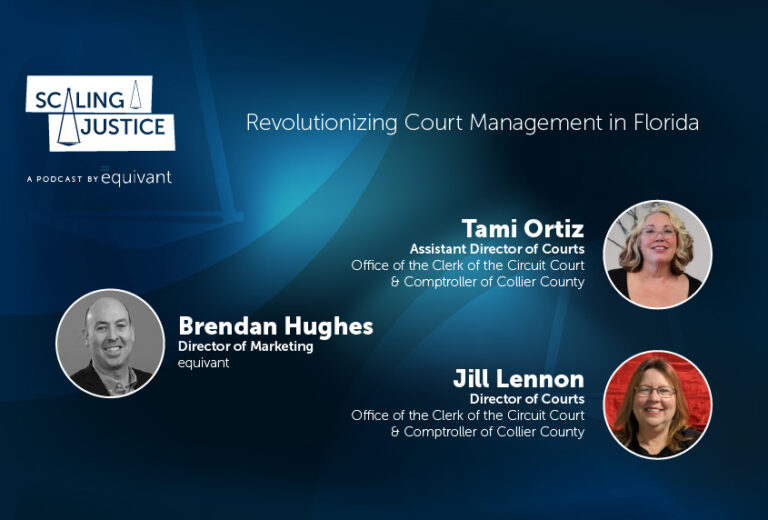Defendants are increasingly representing themselves. Here’s how courts can promote equity in justice with SRLs.
By Gary Egner
The rise of Self-Represented Litigants (SRLs) in the past ten years has dramatically changed the practice of law and court management. In the past, lawyer-represented parties may have been the norm, but Americans are increasingly choosing to waive their right to an attorney and represent themselves in court. It is estimated that at least 60% of cases today involve at least one self-represented party in matters of civil and domestic disputes.
In response, courts are moving towards technology-enabled processes to provide SRLs with the necessary civil legal assistance. Courts may not be able to offer legal counsel, but they continue to bridge the justice gap with innovative court-based programs, online support and resources, and user-friendly mobile platforms.
Providing SRLs with effective legal assistance is a matter of social equity.
Every person deserves the right to procedural justice, transparent legal processes, and proper guidance on the cases in which they are participating. But findings from the 2022 Justice Gap Study estimate that most low-income Americans do not get sufficient legal assistance for their civil legal problems. For low-income households experiencing one or more civil disputes in the past year, only one-quarter sought legal aid. Nearly half of those who did not seek legal aid cited cost as a prohibitive barrier.
To surmount potentially expensive attorney and legal fees, courts can help fill the justice gap by examining their court environment and processes to accommodate SRLs better.
We can look to courts to provide online support and resources for people without lawyers.
Courts have gone to considerable lengths to help SRLs better understand what happens in the courtroom. This includes providing online and in-person support desks to clarify rules and inform litigants on what to expect in virtual proceedings. Courthouse concierge desk programs, for example, are operated by staff and/or volunteers to direct members of the public to the appropriate services and provide basic information about courts. Alternatively, virtual self-help centers can also identify legal concepts most relevant to civil or domestic cases through a selection of online toolkits and resource materials. Intuitive self-help services are highly effective in distributing information and more cost-efficient in facilitating access to justice.
We also expect to see more access-oriented services as courts add electronic filing and document submission, online scheduling, and ePayment options to their technology platforms.
Mobile technology can be leveraged to improve access for SRLs.
Cell phones may eventually provide SRLs with a virtual one-stop shop for procedural guidance and support through mobile applications. As courts build access for people without computers, documents, and forms could soon be made available on mobile devices with easy step-by-step instructions. This would be an important milestone for courts as they establish clear boundaries between what counts as legal counsel and standardized information sharing on public-facing applications.
Streamlining court technology with automated response systems also benefits SRLs with call or text reminders about payments and court dates. The growing usage of smartphones as mini-computers and the shift to legal self-representation will push courts to align their technologies further to simplify and advance justice.
About Gary Egner
equivant, Director of Business Development
With more than 30 years of experience in the justice and public safety sectors in software application development, technical management, and project management, Gary Egner is a leading authority in helping courts and justice agencies serve their communities. Mr. Egner helps courts navigate an often confusing and convoluted IT and software environment.
Focused on forward-thinking solutions and modernizing the industry, Mr. Egner has been a member of the IJIS Court Advisory Committee and numerous committees with the National Council of Juvenile and Family Court Judges. He also sits on the NIEM Open Governance Board and has participated on numerous standards committees with the National Center for State Courts (NCSC), leading efforts to bring national data protocols and standards to the justice industry.
